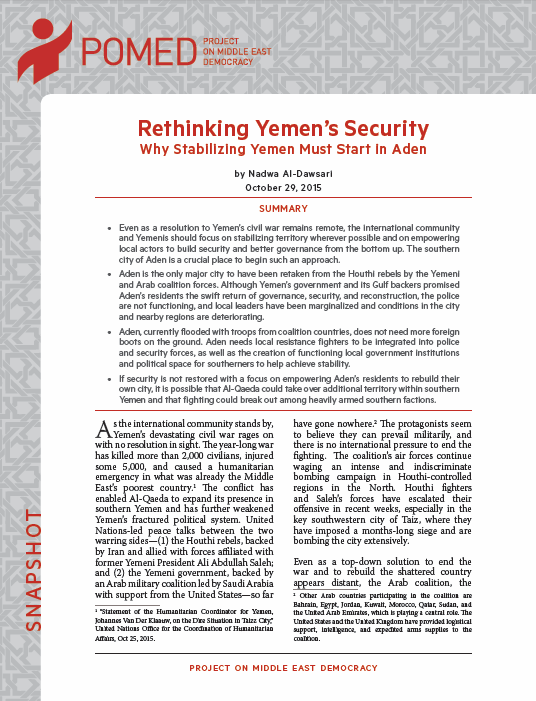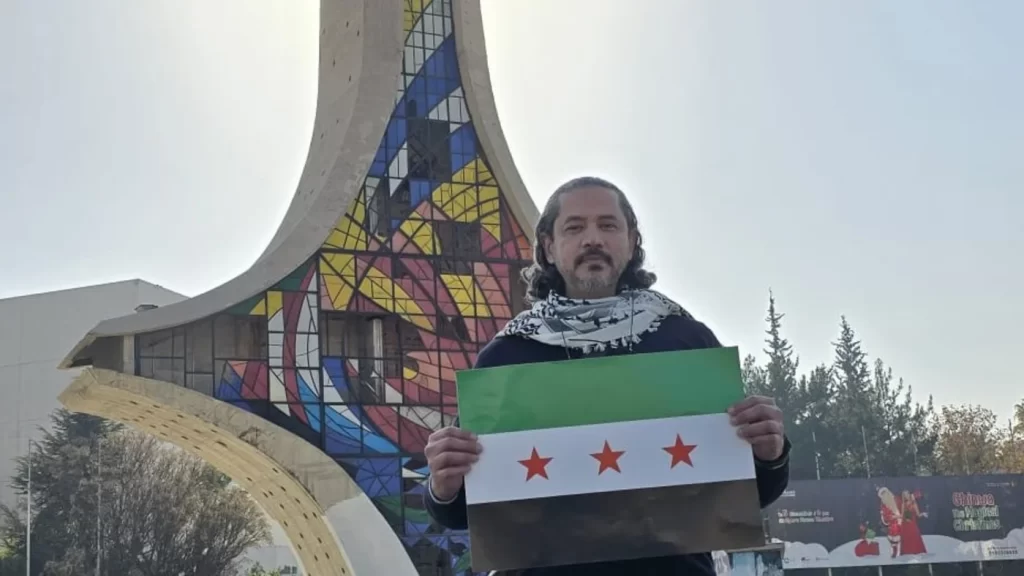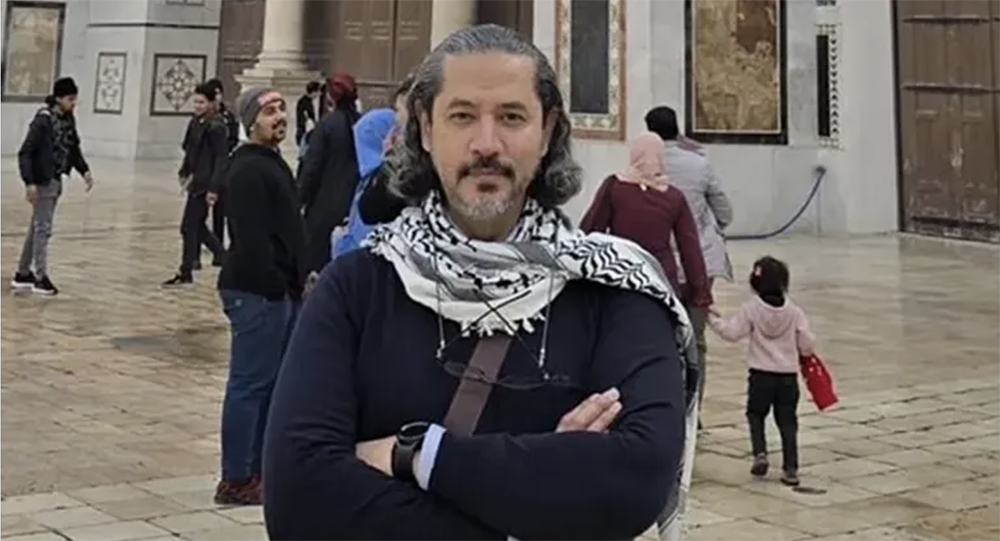For a full text copy of the Snapshot, click here.
As the international community stands by, Yemen’s devastating civil war rages on with no resolution in sight. The year-long war has killed more than 2,000 civilians, injured some 5,000, and caused a humanitarian emergency in what was already the Middle East’s poorest country. The conflict has enabled Al-Qaeda to expand its presence in southern Yemen and has further weakened Yemen’s fractured political system. United Nations-led peace talks between the two warring sides—(1) the Houthi rebels, backed by Iran and allied with forces affiliated with former Yemeni President Ali Abdullah Saleh; and (2) the Yemeni government, backed by an Arab military coalition led by Saudi Arabia with support from the United States—so far have gone nowhere. The protagonists seem to believe they can prevail militarily, and there is insufficient international pressure to end the fighting. The coalition’s air forces continue waging an intense and indiscriminate bombing campaign in Houthi-controlled regions in the North. Houthi fighters and Saleh’s forces have escalated their offensive in recent weeks, especially in the key southwestern city of Taiz, where they have imposed a months-long siege and are bombing the city extensively.
Even as a top-down solution to end the war and to rebuild the shattered country appears distant, the Arab coalition, the international community, and—most of all—Yemenis themselves need to focus on securing and stabilizing territory wherever possible. In Yemen, where regional powers are deeply enmeshed in the crisis, national agendas are fiercely contested, the military remains splintered, and the central government has little control or legitimacy, solutions need to start small and empower local actors to build peace from the bottom up.
The major southern port city of Aden, which serves as the de facto capital for the Yemeni government while the Houthis remain in control of the capital city of Sanaa, is a crucial place to begin such an approach. In late July, after four months of clashes, southern resistance and pro-government Yemeni army forces, backed by Arab coalition forces with heavy weapons, aerial bombing, and other battlefield assistance, pushed out Houthi and Saleh’s forces from Aden and from key southern governorates. In July, Yemeni Vice President and Prime Minister Khaled Bahah promised Aden’s residents the swift return of governance, security, and reconstruction. But instead, local leaders have been marginalized, formal security institutions are not functioning, and the situation is deteriorating dangerously.
SUMMARY
- Even as a resolution to Yemen’s civil war remains elusive, the international community and Yemenis should focus on stabilizing territory wherever possible and on empowering local actors to build security and better governance from the bottom up. The southern city of Aden is a crucial place to begin such an approach.
- Aden is the only major city to have been retaken from the Houthi rebels by the Yemeni and Arab coalition forces. Although Yemen’s government promised Aden’s residents the swift return of governance, security, and reconstruction, the police are not functioning, local leaders have been marginalized, and conditions in the city and nearby regions are deteriorating.
- Aden, currently flooded with troops from coalition countries, does not need more foreign boots on the ground. Aden needs local resistance fighters to be integrated into police and security forces, as well as the creation of functioning local government institutions and political space for southerners to help achieve stability.
- If security is not restored with a focus on empowering Aden’s residents to rebuild their own city, Al-Qaeda could take over additional territory within southern Yemen and fighting could break out among heavily armed southern factions.
Nadwa Al-Dawsari is a Nonresident Senior Fellow with the Project on Middle East Democracy. A leading Yemeni specialist on tribes and tribal conflict resolution systems, Al-Dawsari has led the implementation of programs in remote tribal areas since 2005, designing and managing programs to help promote the culture of conflict management and conflict-sensitive development. Her writing on conflict in Yemen has been published by a wide variety of organizations, including the Atlantic Council and U.S. Institute of Peace. She is the founder and former executive director of Partners Yemen, the local affiliate center of Partners Global.
Photo credit: Almigdad Mojalli, Voice of America





